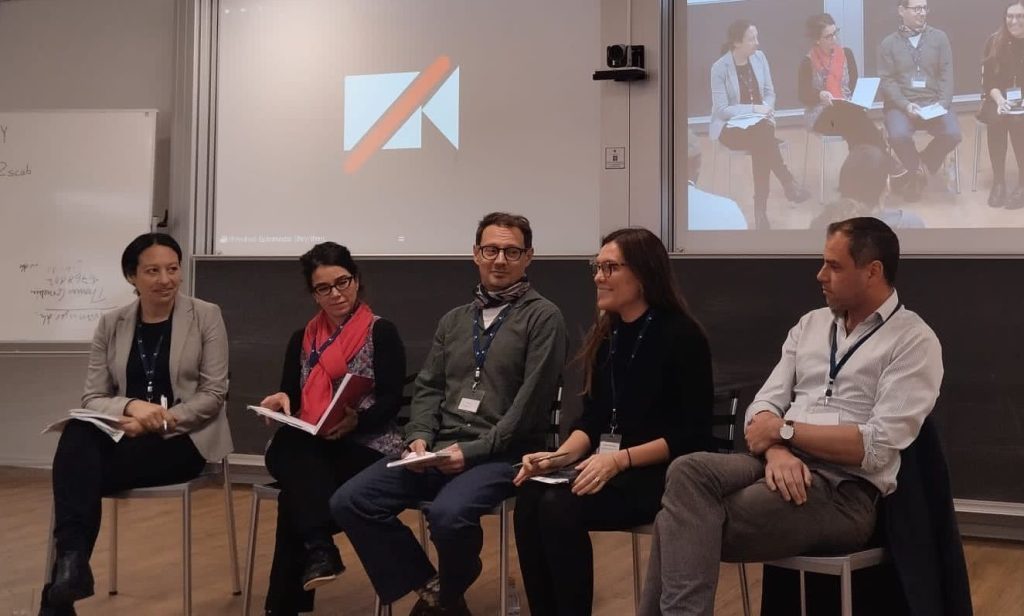Doug Specht speaks at Transformative Connections event in Copenhagen
 Doug Specht joined a roundtable on ‘conflictive territorial dynamics through collaborative mapping’ as part of the Transformative Connections event hosted by The Research Network for Global Justice and the Environmental Humanities in Copenhagen Denmark.
Doug Specht joined a roundtable on ‘conflictive territorial dynamics through collaborative mapping’ as part of the Transformative Connections event hosted by The Research Network for Global Justice and the Environmental Humanities in Copenhagen Denmark.
The roundtable, which served to open the two days of discussion, focused on ways of mapping people, power and politics. Specht was joined by Deborah Delgado Pugley (Pontificia Universidad Catolica del Peru), Camila Moreno (Independent), and Peter Leys (Independent). The panel, moderated by Malayna Raftopoulos (Aalborg University), examined questions of how knowledge related to climate and environmental activism is quantified and codified through specific scientific and mapping practices which may serve to undermine or disenfranchise groups of people.
Follows this opening session, the even brought together scholarly and activist experiences that speak from different backgrounds or that crisscross the boundaries of North and South. The meeting featured scholars and activists reflecting multiple approaches to questions of justice linked to their situated and specific contexts. The event focused on the following questions;
- How can the environmental humanities and civil society collaborate in the promotion of transformations towards a “greener” and environmentally just future that favour social, cultural and political diversity?
- What kind of connections can we foster to develop models of and for positive change?
- What practical initiatives can we build to bridge the gap between knowledge and action in climate, environment, and justice issues?
- What tools are missing to help build diverse relations for a just green transition?
And was organised by Aalborg University, Centre for Environmental Humanities, Aarhus University & Roskilde Universitet. With support from Green Societies & Danmarks Frie Forskningsfond.
Photo: Malayna Raftopoulos (Aalborg University).






